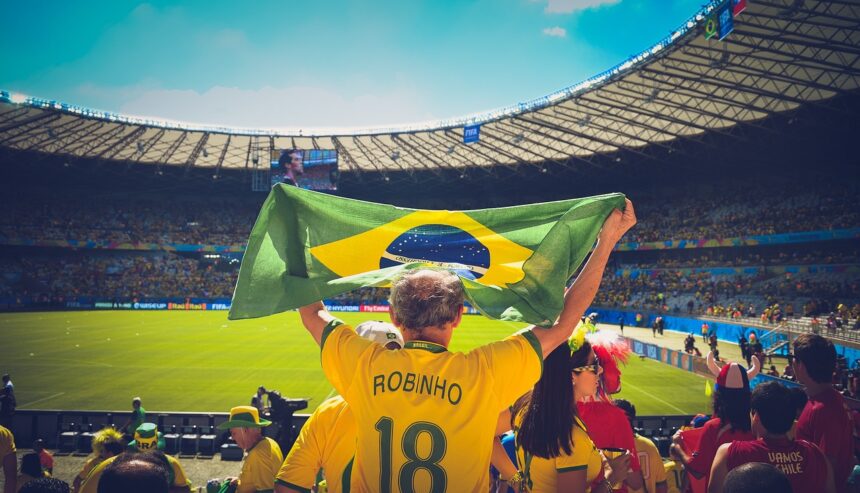The Spain national football team is one of the most iconic and successful teams in world football. With a rich history that spans over a century, Spain has achieved numerous accolades on both the European and global stage. From its early years of formation to its dominance in the late 2000s and early 2010s, the team has become a symbol of technical brilliance, tactical innovation, and relentless pursuit of success.
This blog post will provide an in-depth look at the Spain national football team, including its history, achievements, key players, style of play, current squad, and its role in major tournaments such as the UEFA Nations League. Whether you’re a football enthusiast, a fan of La Roja, or simply curious about the team, this comprehensive guide will help you understand the significance of the Spanish national team in the world of football.
The Early History of Spain National Football Team
Formation and Early Years
The Spain national football team was formed in 1920, when the Spanish Football Federation organised a squad to represent the country in the Olympic Games held in Antwerp, Belgium. The team’s first match was played against Denmark, which they won 1-0. This victory marked the beginning of Spain’s journey on the international stage. In that same Olympic tournament, Spain went on to win the silver medal, giving the team its first taste of international success.
Throughout the early 20th century, Spain continued to develop its footballing identity, competing in major tournaments such as the FIFA World Cup and the European Championship. However, it wasn’t until the 1960s that Spain started to establish itself as a force to be reckoned with in European football.
First Major Trophy: Euro 1964
Spain won its first major international trophy in 1964, when they triumphed in the European Championship (now known as the UEFA Euro). The tournament was held on home soil, and Spain defeated the Soviet Union 2-1 in the final to lift the trophy. This victory was a pivotal moment in the team’s history, as it showcased Spain’s potential to compete at the highest level.
The Golden Generation: Spain’s Dominance (2008-2012)
The late 2000s and early 2010s marked the most successful period in the history of the Spain national football team. During this time, Spain won three consecutive major international tournaments, establishing themselves as one of the greatest teams of all time.
UEFA Euro 2008: The Beginning of an Era
Spain’s road to dominance began with their triumph at UEFA Euro 2008, held in Austria and Switzerland. Under the management of Luis Aragonés, Spain played a possession-based, attacking style of football that mesmerised fans and opponents alike. The team, led by players like Xavi Hernández, Andrés Iniesta, and Fernando Torres, won the tournament by defeating Germany 1-0 in the final, with Torres scoring the winning goal.
This victory ended Spain’s 44-year wait for a major international trophy and marked the beginning of their golden era.
2010 FIFA World Cup: Spain’s First World Cup Victory
Two years after their Euro 2008 triumph, Spain achieved their greatest success by winning the 2010 FIFA World Cup in South Africa. Managed by Vicente del Bosque, Spain continued to play their trademark possession football, known as “tiki-taka,” which was characterised by short, quick passes, high pressing, and dominating ball control.
Spain progressed through the tournament with a series of narrow victories, including a memorable 1-0 win against the Netherlands in the final, where Andrés Iniesta scored the winning goal in extra time. This victory solidified Spain’s reputation as one of the best teams in world football and earned them their first-ever World Cup trophy.
UEFA Euro 2012: A Historic Three-Peat
Spain’s golden era was capped off with their victory at UEFA Euro 2012, held in Poland and Ukraine. By this time, Spain had become synonymous with their possession-based style of play, and they entered the tournament as the favourites. The team lived up to expectations, winning the tournament with a 4-0 victory over Italy in the final—a record margin of victory in a European Championship final.
This win made Spain the first and only national team to win three consecutive major international tournaments (Euro 2008, World Cup 2010, Euro 2012), cementing their place in football history.

The Tiki-Taka Style of Play
One of the defining characteristics of Spain’s national football team, especially during their golden era, is their style of play known as “tiki-taka.” This tactical approach is based on short, quick passes, maintaining possession, and high pressing to recover the ball as quickly as possible. Tiki-taka is built on the philosophy of controlling the game through ball possession, forcing opponents to chase the ball and make mistakes.
Key players such as Xavi Hernández, Andrés Iniesta, and Sergio Busquets were instrumental in executing this style of play, as their technical abilities and vision allowed them to dominate the midfield and dictate the pace of the game.
Although tiki-taka has evolved over the years, it remains a core component of Spain’s footballing philosophy, influencing not only the national team but also the domestic league, La Liga, and footballing culture in Spain.
The Current Squad: A New Generation of Talent
After the golden generation, Spain national football team experienced a period of transition as several key players retired from international football. However, the team has since undergone a rejuvenation, with a new generation of talented players emerging to carry the torch.
Key Players in the Current Squad
- Sergio Busquets – One of the few remaining players from the golden generation, Busquets continues to play a vital role as the team’s defensive midfielder. His ability to read the game, break up opposition attacks, and dictate play from deep is invaluable to Spain’s style.
- Pedri – A rising star in Spanish football, Pedri has quickly established himself as one of the most promising young talents in world football. His vision, technical ability, and composure on the ball make him a key player for both Spain and his club, FC Barcelona.
- Ferran Torres – A versatile forward who can play on the wing or as a striker, Torres has become an important attacking option for Spain. His speed, dribbling skills, and ability to score goals make him a dangerous threat to opposition defenses.
- Aymeric Laporte – After switching his international allegiance from France to Spain, Laporte has become a key figure in Spain’s defense. His composure on the ball, strength in the air, and defensive intelligence make him a crucial part of the team’s backline.
- Unai Simón – Spain’s first-choice goalkeeper, Simón has impressed with his shot-stopping abilities and distribution. He has been a reliable presence between the posts and will be a key figure in Spain’s future success.
The Manager: Luis de la Fuente
As of 2024, Spain’s national team is managed by Luis de la Fuente, who took over the reins from Luis Enrique. De la Fuente has a strong background in Spanish football, having worked with the country’s youth teams before being promoted to the senior team. Under his leadership, Spain continues to blend the technical style of play that has defined them while integrating young talents into the squad.
Spain in the UEFA Nations League
The UEFA Nations League is a relatively new tournament, introduced by UEFA to replace international friendlies with more competitive matches. Spain has participated in all editions of the Nations League and reached the final in the 2020-21 season, where they finished as runners-up to France.
Spain’s performances in the Nations League have demonstrated that, despite going through a transitional period, they remain one of the top teams in Europe. The competition has provided valuable opportunities for Spain’s new generation of players to gain experience and develop on the international stage.
Major Tournaments and Spain’s Prospects
UEFA Euro 2024
As Spain prepares for the upcoming UEFA Euro 2024 tournament, expectations are high. The team has qualified for the tournament and will be looking to add another European Championship to their impressive list of achievements. With a mix of experienced veterans and young talents, Spain is considered one of the favourites to challenge for the title.
2026 FIFA World Cup
Looking ahead to the 2026 FIFA World Cup, Spain is focused on building a team capable of competing with the world’s best. The emergence of young stars like Pedri, Gavi, and Ansu Fati provides hope for the future, and fans are eager to see if Spain can reclaim their status as world champions.
Spain’s Impact on World Football
Beyond their success on the pitch, Spain’s national football team has had a profound impact on world football. Their tiki-taka style of play has influenced teams and managers around the world, with many attempting to emulate their possession-based approach.
Spanish football has also produced some of the greatest players and managers in history, from the likes of Xavi and Iniesta to Pep Guardiola and Vicente del Bosque. These individuals have left an indelible mark on the sport, and their contributions continue to shape football at all levels.
Conclusion
The Spain national football team is a symbol of technical brilliance, tactical innovation, and footballing excellence. From their early successes to their golden era of dominance, Spain has established themselves as one of the most successful and influential teams in world football.
As the team enters a new era with a fresh generation of talent, the future looks bright for La Roja. With upcoming tournaments like UEFA Euro 2024 and the 2026 FIFA World Cup on the horizon, Spain will continue to be a force to be reckoned with on the international stage.







